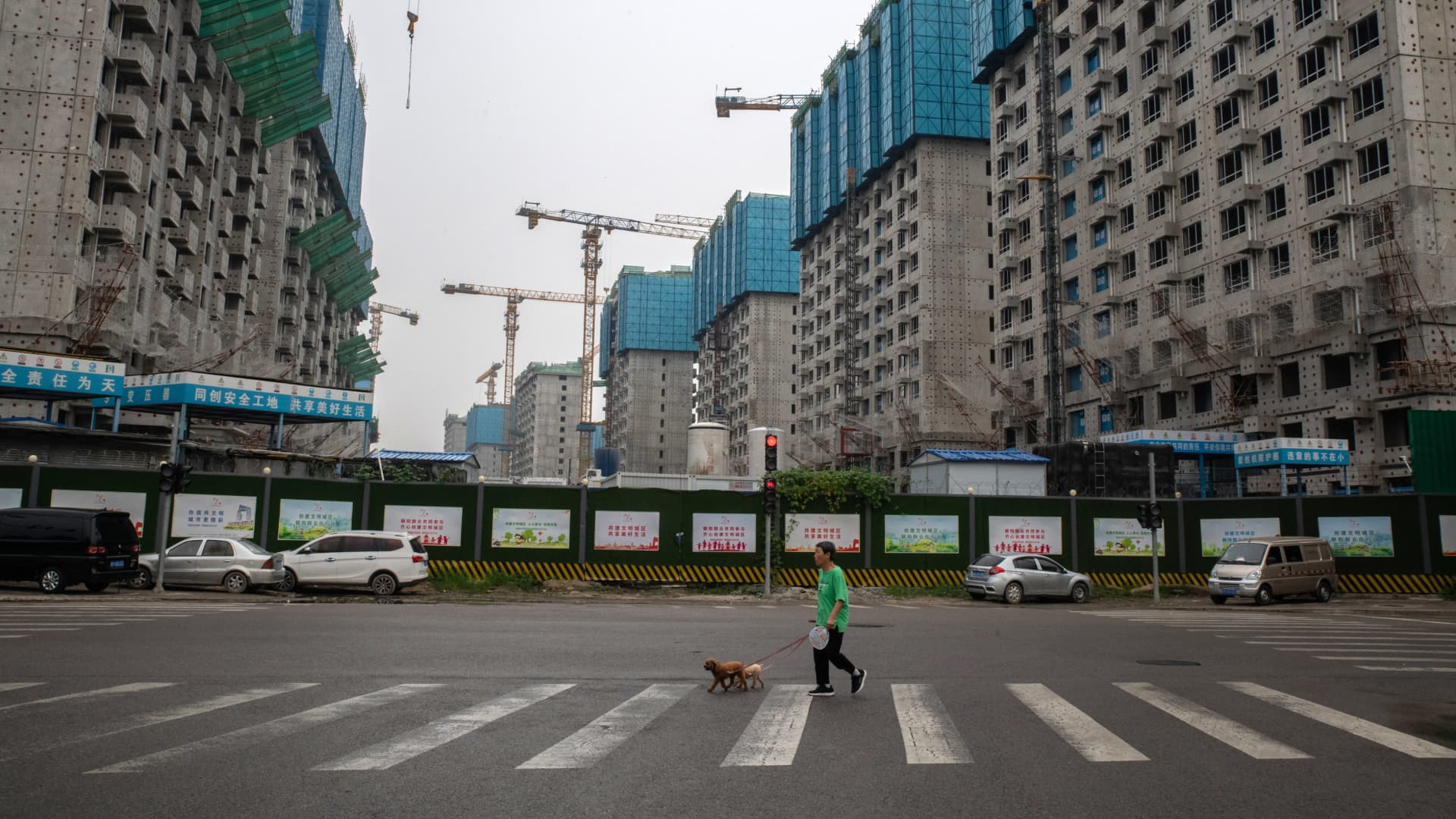China’s massive real estate market has struggled after decades of debt-fueled, rapid growth.
Bloomberg | Bloomberg | Getty Images
BEIJING — China reported July data that broadly missed expectations. The National Bureau of Statistics report also did not include the unemployment figure for young people, which has soared to record highs in recent months.
Retail sales rose by 2.5% in July from a year ago, below expectations for a 4.5% increase, according to analysts polled by Reuters.
Industrial production rose by 3.7% in July from a year ago, below the 4.4% increase analysts had expected.
Fixed asset investment rose by 3.4% for the first seven months of the year from a year ago, below the 3.8% forecast by the Reuters poll.
The urban unemployment rate ticked up to 5.3% in July from 5.2% in June.
Contrary to prior reports, the latest release did not break down unemployment by age. The age 16 to 24 category has seen unemployment far above the overall jobless rate, reaching a record high of 21.3% in June.
On a year-to-date basis, real estate investment fell by 8.5% from a year ago as of July, a greater decline than as of June.
After an initial rebound from the pandemic earlier this year, China’s economy has come to grips with long-standing problems and slowing global demand for its products.
Exports plunged by 14.5% year-on-year in July, following a 12.4% drop in June. Factory activity contracted for a fourth-straight month in July, according to an official survey.
Domestic demand has remained muted outside of summer tourism. Imports fell by 12.4% year-on-year in July and have mostly declined each month from the same period in 2022.
The consumer price index fell in July, adding to growing worries about deflation.
Weighing on the economy is an ongoing slump in the massive real estate sector. Property market troubles have come to the forefront again with developer Country Garden now on the brink of default.
Top leaders in late July signaled a shift away from its crackdown on real estate speculation. Authorities have announced a raft of measures to boost consumption, private sector investment and foreign investment.
But the overall approach to additional stimulus has been cautious, especially in real estate.
“Beijing has already done some things to ease the tensions in the property sector, but it has been too slow and too little, in our view,” Ting Lu, chief China economist at Nomura said in a note Monday.
“We believe that at some point in time Beijing will be compelled to take more measures to stem the downward spiral.”
Factory activity in July picked up to its highest since March, while core CPI, that strips out food and energy prices, actually posted its fastest increase in July since January.
This is breaking news. Please check back for updates.





















Discussion about this post